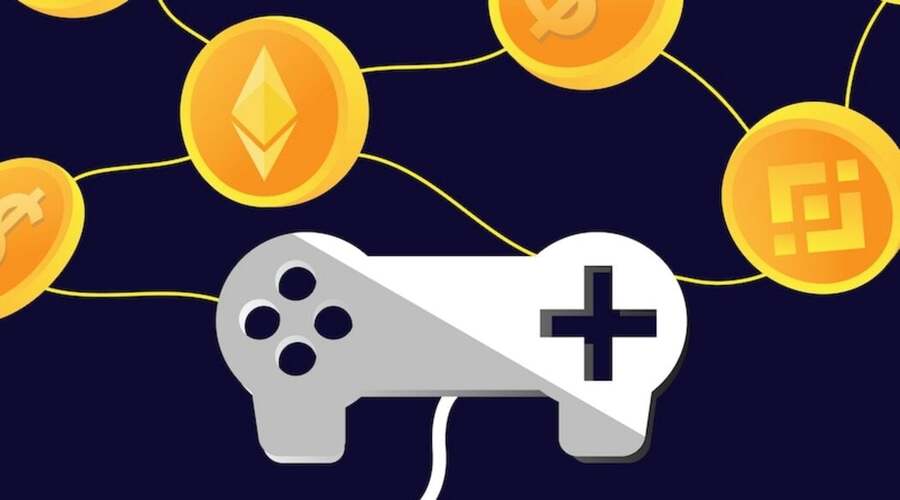
The Ethical considerations of GameFi and its potential impact on Gaming Culture
- Cary
- March 16, 2023
- Blockchain, GameFi, Web3.0
- Blockchain, GameFi
- 0 Comments
GameFi, or gaming finance, is a new and rapidly growing trend in the gaming industry that involves the integration of blockchain technology and decentralized finance into games. While GameFi offers many exciting opportunities for players, game developers, and investors alike, it also raises important ethical considerations that need to be addressed. In this article, we will explore some of the potential ethical implications of GameFi and its impact on gaming culture.
The Gamification of Finance
One of the most significant ethical considerations of GameFi is the gamification of finance. GameFi platforms allow players to earn real-world rewards for in-game activities, such as completing quests or collecting rare items. While this can be a fun and exciting way to earn money, it also raises concerns about the potential for players to become addicted to the financial rewards and to engage in risky behavior in pursuit of these rewards. Game developers have a responsibility to ensure that their GameFi platforms are designed in a way that encourages responsible and safe behavior.
The Creation of Wealth Inequality
Another ethical consideration of GameFi is the potential for wealth inequality to be created among players. Players who are early adopters of GameFi platforms and who have access to more resources and capital may have an advantage over other players in terms of earning rewards and generating income. This can lead to a situation where a small percentage of players control a large portion of the wealth in the game, creating an unfair and unequal playing field. Game developers must be mindful of this potential and take steps to ensure that their GameFi platforms are designed in a way that promotes equality and fairness among players.
The Risk of Fraud and Scams
GameFi platforms also raise concerns about the potential for fraud and scams. Because GameFi platforms involve real-world financial transactions, there is a risk that malicious actors could exploit vulnerabilities in the system to engage in fraudulent behavior. Game developers must take steps to protect their players from these risks, including implementing robust security measures and educating players on how to protect themselves from scams and fraud.
The Impact on Gaming Culture
Finally, GameFi has the potential to significantly impact gaming culture. By integrating financial incentives into games, GameFi could change the way that players approach and engage with games. Some worry that this could lead to a shift away from games as a form of entertainment and towards games as a source of income. Additionally, the financial incentives of GameFi could encourage players to engage in behavior that is harmful to the gaming experience, such as cheating or exploiting loopholes in the system. Game developers must be mindful of these potential impacts and work to ensure that their GameFi platforms enhance, rather than detract from, the overall gaming experience.
The Regulation of GameFi
As GameFi becomes more popular, it is likely that regulators will begin to take notice and consider how to regulate the industry. This raises important questions about how to balance the potential benefits of GameFi with the need for consumer protection and financial stability. Regulators must strike a balance between ensuring that GameFi platforms are safe and secure for players and investors while not stifling innovation in the industry. Game developers must work with regulators to develop regulatory frameworks that support innovation and protect consumers.
The Impact on Traditional Gaming Models
Another important ethical consideration of GameFi is the potential impact on traditional gaming models. Traditional gaming models rely on players paying upfront for access to a game, with no expectation of earning financial rewards in return. GameFi, on the other hand, allows players to earn real-world rewards for in-game activities. This could lead to a shift in the way that games are monetized and distributed, potentially disrupting the traditional gaming industry. Game developers must be mindful of this potential impact and work to ensure that their GameFi platforms complement, rather than disrupt, the traditional gaming industry.
The Role of Community and Social Responsibility
Finally, the ethical considerations of GameFi also extend to the role of community and social responsibility. Game developers have a responsibility to create GameFi platforms that are inclusive, diverse, and promote social responsibility. This includes ensuring that the rewards and benefits of GameFi are accessible to all players, regardless of their socioeconomic status, race, or gender. Developers should also work to ensure that their GameFi platforms promote positive social values and do not contribute to negative behaviors, such as addiction or excessive risk-taking.
Wealth Inequality and Social Impact
One of the ethical considerations of GameFi is its potential to exacerbate wealth inequality. GameFi platforms offer players the opportunity to earn financial rewards for their in-game activities, which can lead to a concentration of wealth in the hands of a few players who are particularly skilled or lucky. This can create a sense of unfairness among other players who may not have the same opportunities to earn rewards, potentially leading to resentment and social unrest. Game developers must consider ways to mitigate the potential impact of wealth inequality on their platforms, such as implementing measures to ensure a more equitable distribution of rewards or promoting social responsibility through charitable giving or other means.
Transparency and Disclosure
Another important ethical consideration of GameFi is the need for transparency and disclosure. GameFi platforms operate in a largely unregulated space, which can make it difficult for players to fully understand the risks and potential rewards of participating. Game developers must be transparent about the mechanics of their platforms, including the algorithms and systems used to determine rewards and payouts. They must also provide clear disclosures about the risks involved, such as the potential for loss of funds or the risk of scams and fraud. By being transparent and disclosing the risks involved, game developers can help to protect players and build trust in their platforms.
Education and Player Protection
GameFi also raises important questions about player education and protection. Many players may be unfamiliar with financial concepts and may not fully understand the risks and potential rewards of participating in GameFi platforms. Game developers must take responsibility for educating players about the risks and benefits of their platforms and provide resources to help players make informed decisions. They should also implement measures to protect players from fraud and scams, such as robust security measures and fraud detection systems.
Conclusion
In conclusion, the ethical considerations of GameFi are complex and multifaceted. From the gamification of finance to the potential for wealth inequality, fraud, and scams, game developers and regulators must work together to create a GameFi industry that is safe, secure, and fair for players and investors. The impact of GameFi on gaming culture and traditional gaming models must also be considered, as well as the role of community and social responsibility in the development of GameFi platforms. By taking a holistic approach to GameFi development, game developers can create platforms that are both financially rewarding and socially responsible, enhancing the gaming experience for players and contributing to the overall growth and sustainability of the gaming industry.

